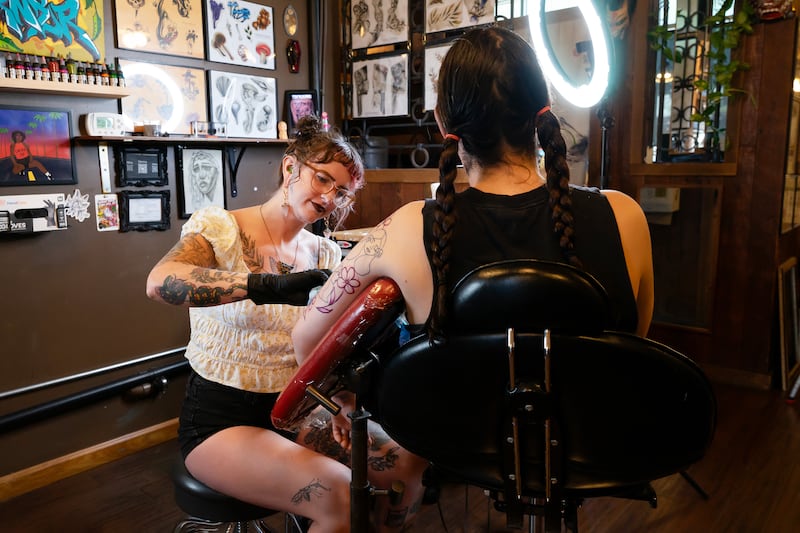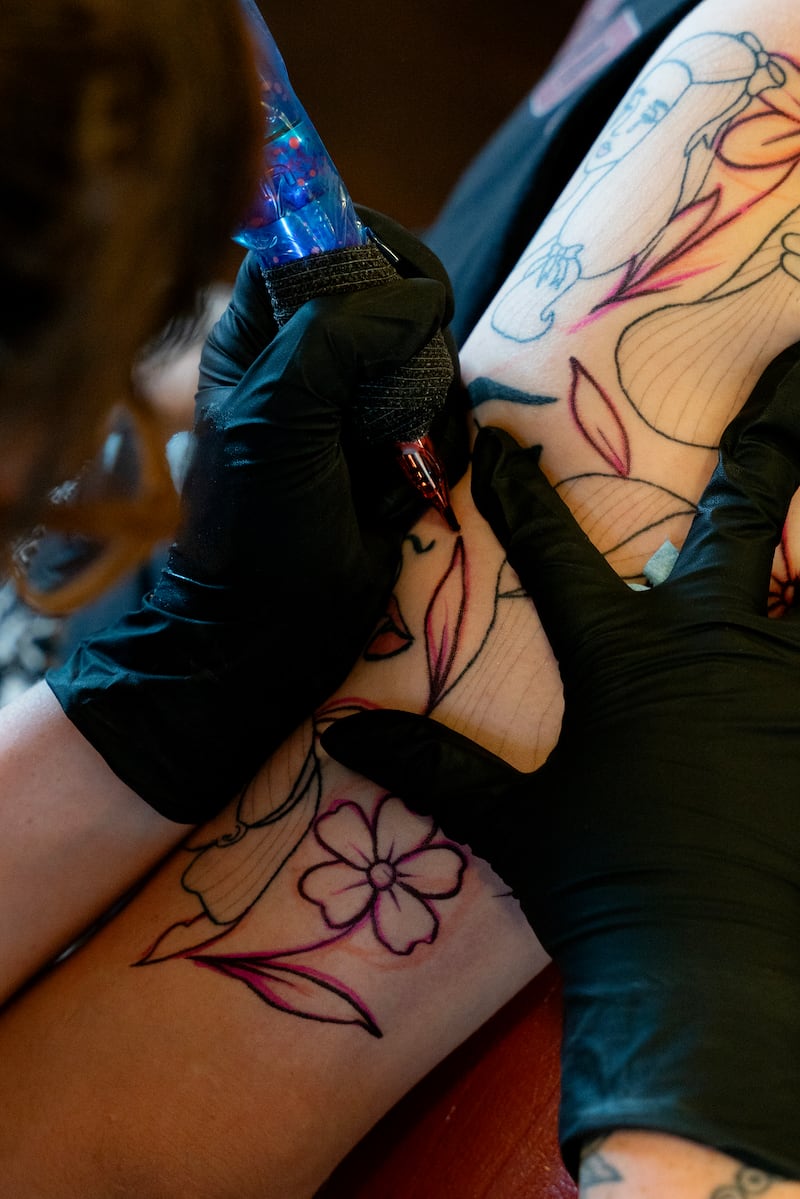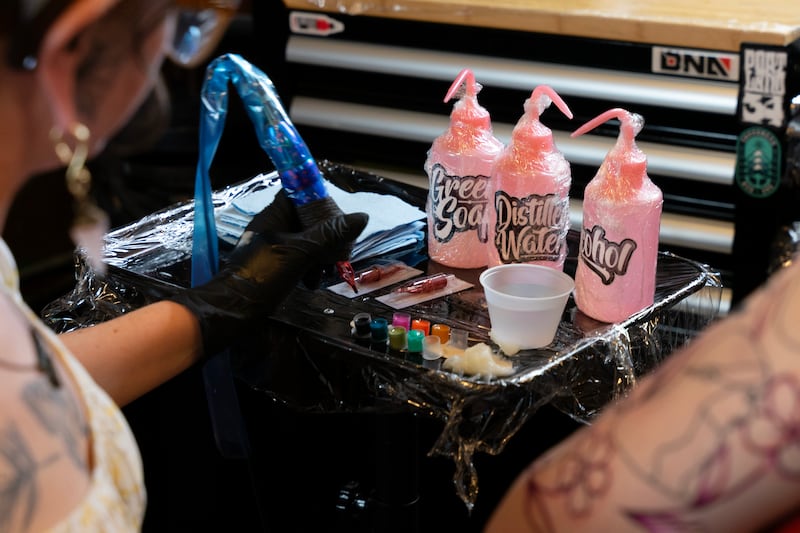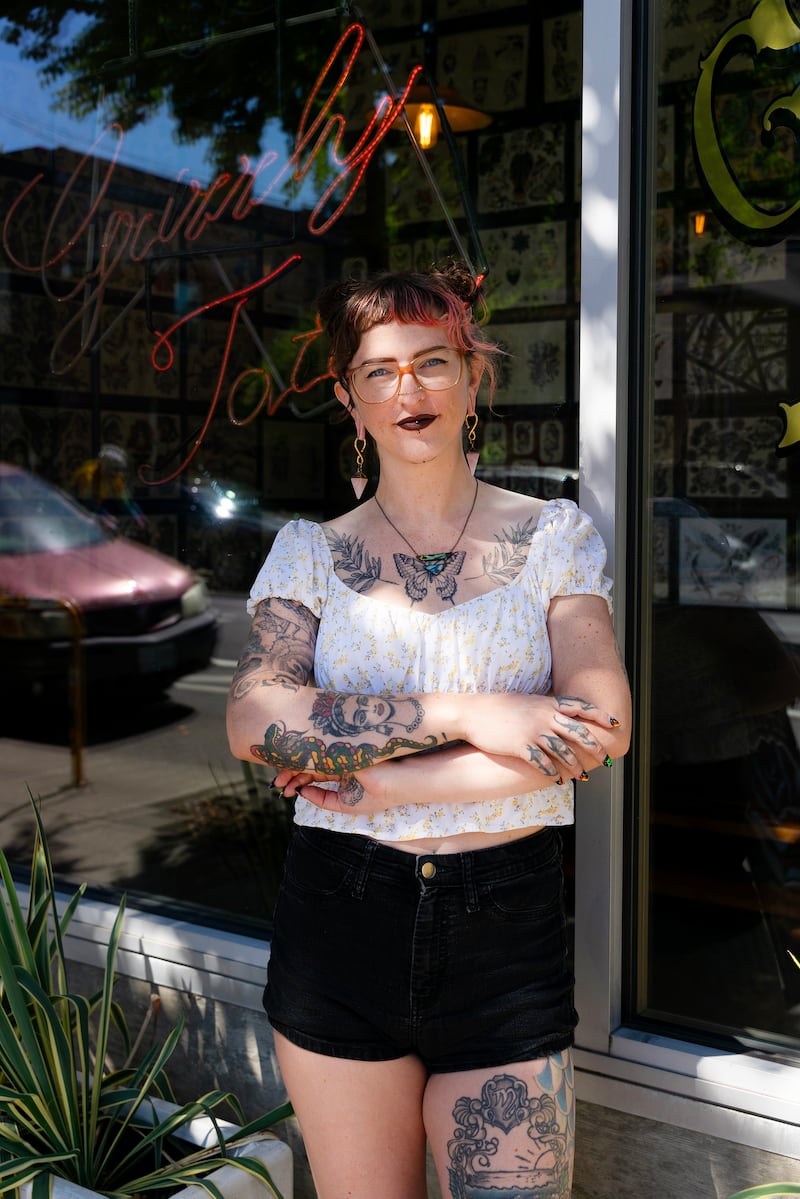Cosette “Cozy” Hardman, 30, is pretty sure she’s one of a kind—the state’s only deaf tattoo artist.
Born profoundly deaf, Hardman got a cochlear implant at age 10. The operation allowed her to hear about 85% of normal.
“I didn’t really hear or know how to talk or hear until then,” she says. As a young girl, she learned American Sign Language and depended on her other senses. “I feel like I would notice things happening before hearing people did and paid more attention to details,” she says. “And my sense of smell, it’s really good.”
At first, she recalls, everything—including her own words—was overwhelming.
“I kind of yelled, because I didn’t know how loud I was,” she says.
A couple of years after she first heard sounds, Hardman decided she wanted to be a tattoo artist. It was a career that would combine her love of drawing with the opportunity to create personal connections with clients through the life events or symbols that prompted them to get inked.


“It’s kind of being a therapist,” she says. “And they’re putting amazing art on people’s bodies and those people end up being so happy.”
Her path led from Salem, where she was born and raised, to Portland State University, where she earned bachelor’s and master’s degrees in architecture—a subject she chose because of an aptitude test rather than a burning desire to design buildings. After finishing her graduate studies in 2018, Hardman began looking for work in her field and sent out 200 letters to architecture firms. Only a few replied. None wanted to hire her.
“That was really rough,” she says. “And then COVID happened. I was like, ‘Wow, now I’m really not going to be able to find a job.’”
That led her back to ink.
“I always loved the idea of putting art on people’s bodies and making it permanent,” Hardman says. “I drew before I started writing. I love art and I would doodle in class growing up and I just knew that is my calling.”
The requirements to become a tattoo artist in Oregon are stiff: 360 hours of training at a licensed school and 50 completed tattoos. (A spokesperson for the licensing agency says it cannot comment on Hardman’s belief she is the only tattoo artist who is deaf, citing personal privacy rules.)


Now working at Grizzly Tattoo on North Williams Avenue, Hardman says about 75% of her clients are deaf. People travel from all over the state, she says, because tattoos are so personal and being able to talk to the artist—in sign language, if necessary—is so crucial.
“I’ve heard horror stories of deaf people getting the wrong tattoo because their tattooer would either be uncomfortable communicating with them or misunderstood them,” Hardman says.
Although cochlear implants and other technologies have presented new opportunities for people who are deaf, statistics show they disproportionately struggle in school and experience far higher than average unemployment. Hardman says being an example and providing a service for so many clients who are deaf is a dream come true.
“It’s humbling. It’s sad. It’s exciting,” Hardman says. “Not a lot of people get to say they love their jobs. But I love my job—I love it.”
See the rest of Willamette Week’s Best of Portland 2023 here!

